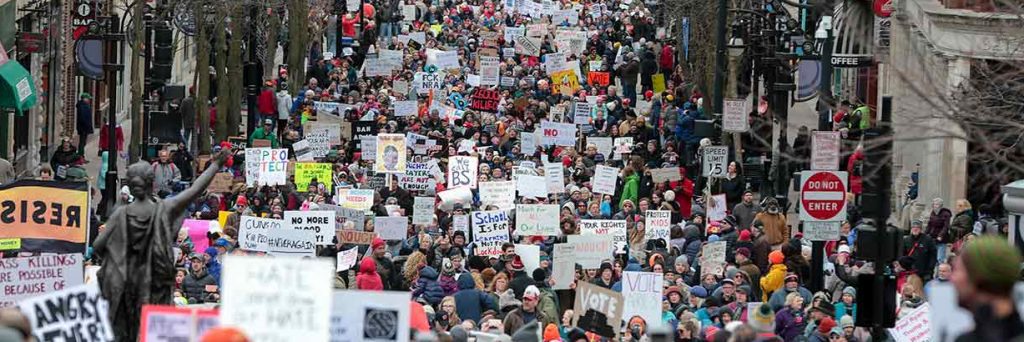Let’s explore some of the most interesting stories that have emerged from Chicago business schools this week.
How the NRA Boycotts Force Companies to Walk a Precarious Tightrope – Kellogg Insights
In light of the recent Parkland and Great Mills school shootings, which attracted an estimated 200,000 protestors to the March For Our Lives rally in Washington DC late last month, Northwestern University Kellogg School of Management professors Brayden King and Tim Calkins discussed what companies susceptible to boycotts can do to build “strong, profitable brands.” Calkins explains the stakes of the game right now:
“The world of transparency we’re in combined with the world of social media means brands have to be very careful about what they’re doing, really scrutinize things in a way they never used to. All of a sudden, they’ve got a problem because of something they never even knew they were doing.”
“That certainly was the case with the NRA boycotts. I think if you were to ask a lot of these executives at these companies, “Do you offer special deals to the NRA?” most of them would have said, “No, we don’t have a partnership with the NRA.” It’s incredibly difficult right now to figure out how to respond. You have to move so quickly, but if you’re not careful, you’ll just make the problem bigger with a tone-deaf response.”
You can read the duo’s entire discussion here.
Nutrition Gap Between Rich and Poor is Growing, but Don’t Blame Food Deserts, Researchers Say – Chicago Booth Blog
Research from Chicago Booth professor of marketing Jean-Pierre Dubé, along with NYU’s Hung Allcott and Stanford’s Rebecca Diamond that reveals the minimal impact that food deserts have on eating habits. Dubé explains:
“One of the conclusions in our study is that opening a supermarket in a food desert has very little impact on the nutritional composition of households’ shopping baskets. People in food deserts shop in supermarkets almost as frequently as people living in higher income neighborhoods. They just travel longer distances to stores.”
The study found several variances of why these events were occurring, including vast educational differences and the willingness for upper-class consumers to pay more for vegetables and other produce.
“Food knowledge and education seem to explain a big chunk of the preferences for what people buy when they shop for groceries,” said Dubé. “If you are educated about the long-term benefits of nutrition, it could affect your shopping behavior.”
Learn more about the trio’s research here.
UIC Business Tackles “Back to College” with Target – UIC Business Blog
UIC Liautaud announced the results of its 2018 Management Leadership Association and Target Case Competition, an annual partnership between Target and the UIC Business Career Center, which invites “students to develop and present solutions to a unique challenge facing the company.”
Team Bersaglio’s “Target Move-In” proposal took first place, which attempted to eliminate the hassle for college students to “store items over the summer in preparation for college.”
The plan offered that students living on campus would “receive free shipments via specialized Target college gift registry” and could retrieve “purchases from a designated “Target Zone” on campus and receive customer service support and delivery assistance carrying packages to the dorms on move-in days.”
Read more about the competition here.
